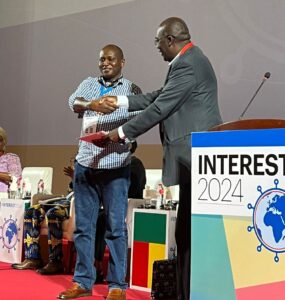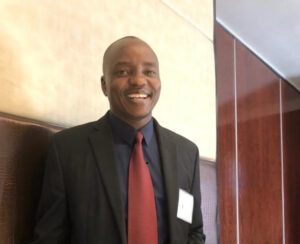The Covid-19 pandemic has seen CARTA fellows utilize their programme-acquired skills in grant management and adopting to virtual teaching. We caught up with Dr. Nkosiyazi Dube, a CARTA Graduate, recipient of a CARTA re-entry grant, and lecturer at the Social Work unit at the University of Witwatersrand. He shared his experience and the lessons he has drawn from CARTA.
How has virtual teaching changed the way you teach? What adjustments have you had to make?
I was supposed to teach a week-long Master’s course on Social Development in the last week of March 2020. However, the South African government imposed lockdown restrictions to help curb the spread of the Covid-19 disease. The University’s management thus advised staff to relook into the courses and prepare for online delivery of all the remaining classes and modules. It wasn’t an easy task, mostly having to compress a five-day-long course to virtual delivery and learning how to navigate the virtual teaching platforms. I spent some hours trimming content and reducing a usually 5-hour contact teaching class to just a maximum of 1-hour 30-minute online session. Even though this transition was full of anxieties and uncertainties, I managed to complete the teaching within a week. Thanks in part to the lessons I got from CARTA seminars, workshops, JASes, and conferences that use different teaching methods. I was still using blended learning through the Wits e-learning site known as ‘SAKAI.’ However, as the need for change was ‘now’ and soon, I had to adjust to virtual teaching, which I love now.
How did your experience in the CARTA fellowship help you navigate the disruption that Covid-19 has occasioned on the normal way of doing things and the transition into teaching and supervising students online?
My CARTA fellowship experience came in handy during the COVID-19 disruption and the emergence of the ‘new’ normal. Looking back, my enrollment to CARTA in 2014 may as well have started preparing me for this. Firstly, the research ‘clinics’ that I attended helped me understand my story; there was no time to beat about the bush, so it is in virtual teaching. Secondly, my experience in the ‘elevator pitch’ seminar, which I undertook in JAS 4, also came in handy as I gained the skill to spark interest in my courses and the need to go straight to the point. Thirdly, when it came to students’ online supervision, I revisited the ESE:O concept of online literature review assignments, which I did in my CARTA preparatory work for JAS 2. It guided me on how to give clear and constructive feedback online. In most cases, online feedback comes from the supervisor asking students questions or seeking clarifications; however, for ESE:O, the experience was different as feedback was critical yet developmental. Therefore, as much as it was painful when I did it, it became handy as I managed to continue with online supervision for my Honours, Master’s students, and PhD candidates, without facing significant difficulties.
How has your experience with the CARTA re-entry grants helped you with managing grants and research?
The CARTA re-entry grant has been one of the most exciting moments of my CARTA fellowship. The grant has been an eye-opener, showing me that grants’ theoretical and practical management is two different aspects. I had initially believed that drawing up a grant budget was adequate in grant management. I have, however, realized that there is more to it than budget approval. Many other aspects come into play, including administration, leadership skills, financial management skills, and adherence to deadlines.
Due to our institution’s undertaking of managing grants for academics, I never knew that it was this demanding. The situation was further exacerbated by the COVD-19 lockdown, which paralyzed most of the project’s operations. Due to the project’s timelines being affected, I had to rethink the data collection process from focus group discussions and face-to-face interviews to telephonic interviews and telephonic completion of the biographical questionnaires. Despite it being a costly move, it was necessary to obtain the data to advance my scholarly research publications when the project closes.
I urge CARTA to continue with these grants for its fellows because they help enhance our knowledge and practical skills in managing grants. CARTA has the unique characteristic of developing an all-rounded graduate and academic ready to lead in their institution. I believe that the re-entry grant has been a significant highlight for me. This is because my institution’s aspirations of being a research-intensive university are propped by a firm emphasis on research and publishing in peer-reviewed journals. As an emerging scholar, I feel that the institutional support is inadequate, for I need to have data to generate articles and book chapters to publish. Therefore, the re-entry grant has given me this opportunity to start building my data sets, which will help me be a research-active academic in the near future.




